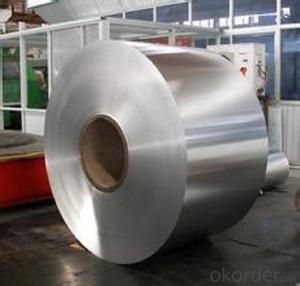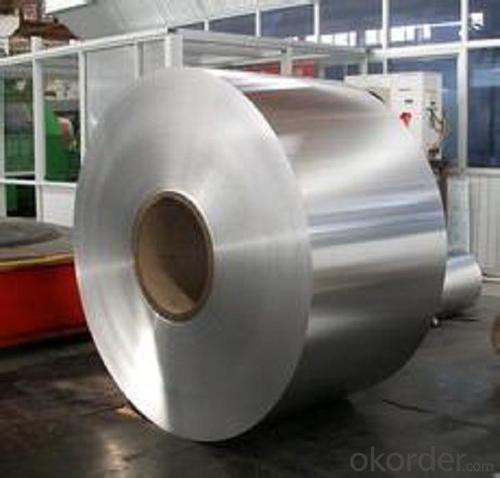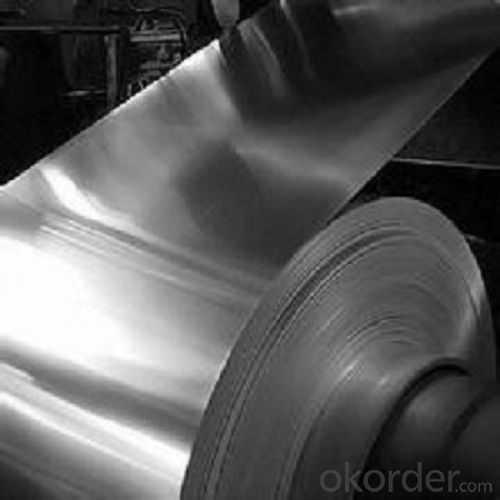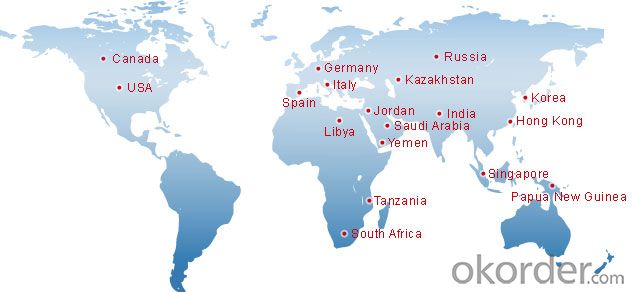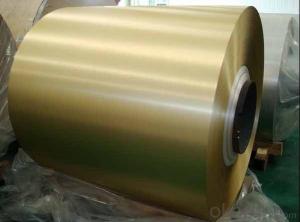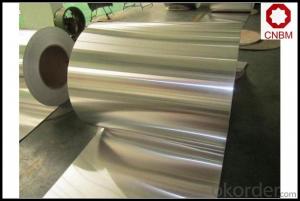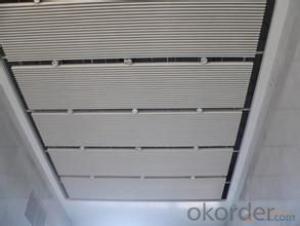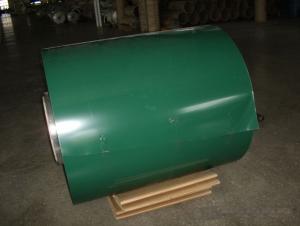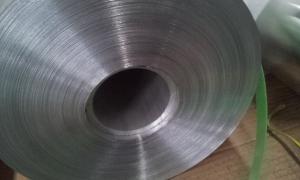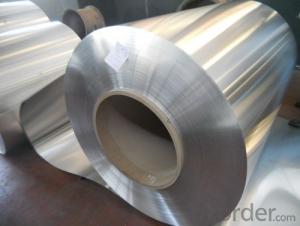Aluminum Coil Prices for Roll Coated Aluminum Hot Coil for Ceiling Panel
- Loading Port:
- Shanghai
- Payment Terms:
- TT OR LC
- Min Order Qty:
- 2.5
- Supply Capability:
- 5000 m.t./month
OKorder Service Pledge
OKorder Financial Service
You Might Also Like
Specification
Roll Coated Aluminum Hot Coil for Ceiling Panel
l Product Description
| Division | Description | Application | Feature |
| 1000 SERIES | 1050 1060 1070 1100 1235representative series aluminum plate is also known as pure aluminum, in the series in 1xxx series belongs to all the alumina quantity of a maximum number of series. Purity can achieve 99.00% above. | Utensil, decoration, Reflecting plate, printing plate, heatproof plate,cookware | Easy to process and weld,resistant to rust,high,conductibility of electricity and heat,low strength |
| 3000 SERIES | 3xxx series aluminum represents 3003 3004,3005, 3 A21 primarily. And can be called in the 3xxx series aluminum antirust aluminum production process more outstanding. The 3xxx series aluminum plate is by manganese as the main component. Content at 1.0-1.5 between. Is a rust-proof function better series. Conventional application in the air conditioning, the refrigerator, such as car in damp environment | Utensil(F/P, inside of rice cooker), aluminum can,material for interior and exterior of building,chemical equipment,Cellular Phone | 20% higher strength than the 1100 series, easily welded and brazed, good antirust,ability Non-heat treatable |
| 5000 SERIES | 5xxx series representatives 5052 5005 5083,5754. The 5000 series aluminum alloy aluminum belong to the more commonly used series, the main elements for magnesium, with magnesium in the amount between 3-5%. And can be called aluminum magnesium alloy. Key features for low density, high tensile strength, elongation rate is high. In the same area under the weight of the magnesium alloy aluminum less than other series. | Ship board heatproof apparatus, material for interior and exterior of building, Parts of Electronic tools.Automobile Components | Excellent corrosion resistance andweld ability together with Easy to process and weld and superior hardness &heatproof Can be anodized for increased corrosion resistance |
| 6000 SERIES | 6xxx series represents 6061 mainly contain magnesium and silicon of two elements, so focused on the 4000 series and the advantages of the 5000 series 6061 is a cold treatment aluminum forging products, apply to fight against corrosion, oxidizing demanding applications. | IT equipment & facility, Mould material, motor material, automatic line, machine & plant etc | Easy to process , good corrosion resistance, high toughness and processed without distortion after heat-treatable, superior surface treatment |
| 7000 SERIES | 7000 aluminum alloy is another common alloy, wide variety. It contains zinc and magnesium. The best strength in the common aluminum alloy is 7075 alloy, but it can't be welded, and its corrosion resistance is rather poor, many manufacturing parts with CNC cutting is 7075 alloy. | The aerospace industry & High strength accessories | 7000 series is high tensile to process with special alloy |
l Packaging & Delivery
Packaging detail: Standard seaworthy exporting carton, Wooden pallets, waterproof paper and plastic coverage or as customer's requirements
Delivery detail: about 25 days from received original L/C or advance payment
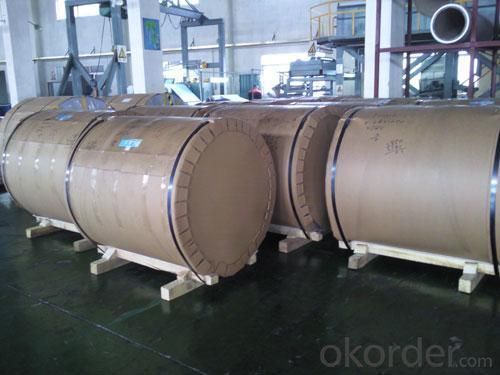
l Company Profile
CNBM International Corporation, China National Building Materials (Group) Corporation, is one of the largest companies in China building material & equipment industry, with 42,800 employees and sales in 2005 of US Dollar 4.395 billion. In 2006, China National Building Material Company Limited was listed on Hong Kong Stock Market with the stock code as 3323. |
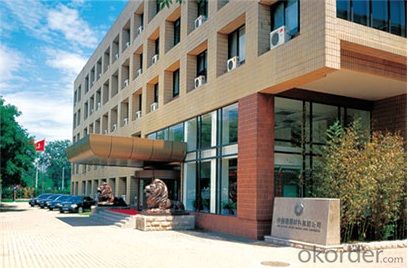
l CNBM World Wide
l Product Images
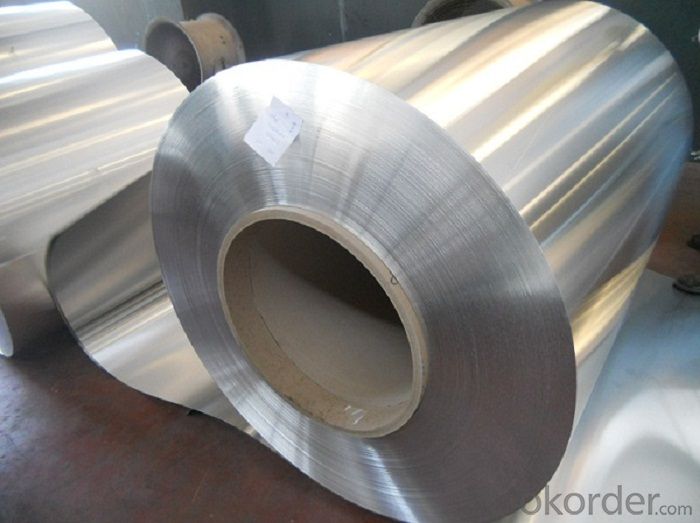
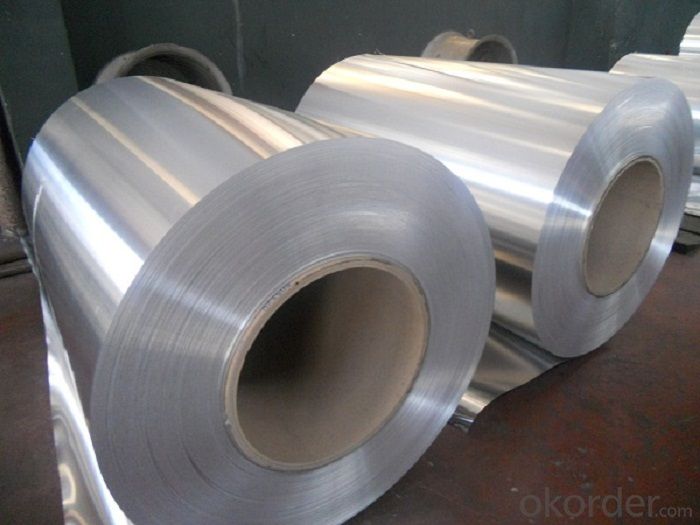
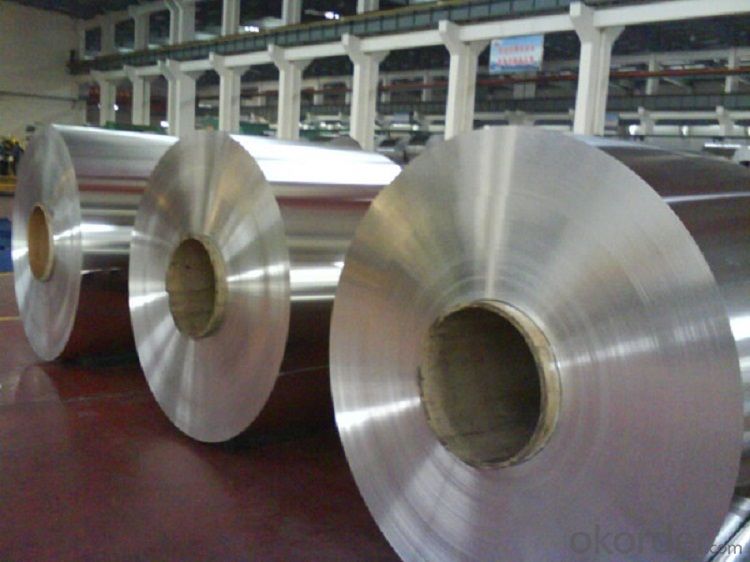
l Certificates
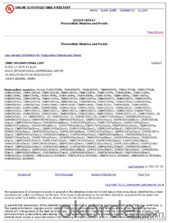
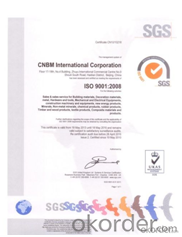
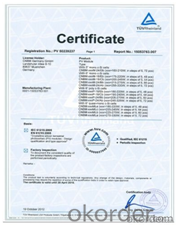
l FAQ
Q: Do you provide free samples?
A: Yes, free samples will be sent to you on freight at destination.
Q: Can I get your latest products catalogue?
A: Yes, it will be sent to you in no time.
Q: What is the MOQ?
A: 2.5 tons
Q: What are your payment terms?
A: We accept L/C, T/T
- Q: Are there any limitations on the width-to-thickness ratio of aluminum coils?
- Yes, there are limitations on the width-to-thickness ratio of aluminum coils. The width-to-thickness ratio is an important factor in determining the overall strength and performance of aluminum coils. If the ratio is too high, it can lead to issues such as buckling, warping, or even failure of the coil. The specific limitations on the width-to-thickness ratio depend on various factors such as the alloy composition, temper, and intended application of the aluminum coil. Different alloys and tempers have different mechanical properties and can handle different ratios. Additionally, the intended application of the coil, such as roofing, automotive, or packaging, may have specific requirements for the width-to-thickness ratio. Manufacturers typically provide guidelines and specifications for the acceptable width-to-thickness ratio based on their product offerings. These guidelines ensure that the coils are used within their intended capabilities and prevent any issues related to excessive width-to-thickness ratios. It is important for users and designers to consider these limitations and guidelines when selecting and utilizing aluminum coils. Failure to adhere to these limitations can result in compromised performance, increased risk of damage, and potential safety concerns. Therefore, it is crucial to consult the manufacturer's recommendations and industry standards to determine the appropriate width-to-thickness ratio for a given application.
- Q: 1mm how much is one square meter for aluminum rolls?
- The price of aluminum sheet is calculated according to the price of aluminum ingot + processing fee (aluminum plate state), and the specific price is also different according to the size and size of aluminum sheet.
- Q: Are aluminum coils suitable for high-strength applications?
- Aluminum coils are generally not suitable for high-strength applications due to their relatively low tensile strength compared to other materials such as steel. Aluminum has a lower strength-to-weight ratio and is more prone to deformation under high loads. However, there are specific alloys of aluminum that have been developed to enhance their strength, such as the 7000 series aluminum alloys, which can offer higher strength levels. These alloys are commonly used in aerospace and automotive industries for their lightweight properties and moderate strength. Nevertheless, for applications requiring the utmost strength, steel or other high-strength materials are usually preferred over aluminum coils.
- Q: I'm wondering if there is a resin/molding material that can withstand the heat of melted aluminum for casting parts. I know that sand casting is the 'norm' but is there anything else? I'd rather not have to pack sand every time I want to cast a part.Thanks!
- One common mold material for metal casting is plaster mixed with silica sand to give it more strength. It needs to be completely (like heated) dry before you use it, but it is actually more work than sand casting but it gives a better finish. There are some rubber materials which can withstand the heat of casting pewter, but the melting point of pewter is so much lower than aluminum that I am sure those won't work for aluminum. I think you are pretty much stuck with sand for the easiest method.
- Q: This question asks about the environmental impact of aluminum coils, including potential effects on the ecosystem and human health.
- <p>Aluminum coils, when produced and used responsibly, have minimal environmental impact. However, improper disposal or manufacturing can lead to pollution. Aluminum production requires significant energy, contributing to greenhouse gas emissions. During manufacturing, if not managed properly, can release harmful substances into the air and water. Yet, aluminum is highly recyclable, reducing its environmental footprint over time. When disposed of improperly, aluminum can contribute to litter and leach harmful substances into the soil and water, affecting wildlife and potentially human health. Responsible recycling and manufacturing practices are crucial to mitigate these effects.</p>
- Q: How do aluminum coils contribute to sustainable manufacturing practices?
- The numerous environmental and economic benefits of aluminum coils make them crucial for promoting sustainable manufacturing practices. To start, aluminum is an incredibly recyclable material, with almost 75% of all aluminum ever produced still in use today. This means that aluminum coils can be recycled and reused multiple times without losing their quality or performance. Unlike producing new aluminum, recycling aluminum requires only a fraction of the energy, resulting in significant energy savings and reduced greenhouse gas emissions. Furthermore, the lightweight nature of aluminum coils contributes to energy efficiency in transportation and reduces fuel consumption during shipping. This characteristic allows for more efficient use of resources, as less material is needed to achieve the same strength and durability compared to other metals. Consequently, this not only reduces the overall weight of products but also lowers the energy required for their fabrication and transportation. Moreover, the excellent corrosion resistance of aluminum coils extends their lifespan and reduces the need for frequent replacement. This factor not only saves resources but also reduces waste generation and associated environmental impacts. Additionally, aluminum coils are non-toxic and do not release harmful substances into the environment, making them a safe and sustainable choice for various manufacturing applications. In terms of economic benefits, aluminum coils contribute to sustainable manufacturing practices by offering cost savings throughout their lifecycle. The recyclability of aluminum reduces the need for raw material extraction, thereby lowering operational costs and dependence on virgin resources. Additionally, the lightweight nature of aluminum coils allows for more efficient use of energy and resources, resulting in reduced manufacturing and transportation costs. In conclusion, aluminum coils are essential for promoting sustainable manufacturing practices due to their recyclability, lightweight nature, corrosion resistance, non-toxicity, and cost-saving benefits. By integrating aluminum coils into manufacturing processes, companies can reduce their environmental footprint, conserve resources, promote energy efficiency, and contribute to a more sustainable and greener future.
- Q: This question asks about the duration an aluminum coil can last before it needs to be replaced or becomes unusable.
- <p>The lifespan of an aluminum coil can vary significantly depending on its application, quality of the material, and environmental conditions. Generally, if properly stored and used, aluminum coils can last for several years without significant degradation. However, in industrial settings where coils are subjected to continuous use and harsh conditions, their lifespan might be reduced to a few years or even less. Regular maintenance and inspection can help extend the lifespan of aluminum coils.</p>
- Q: Are aluminum coils suitable for heat sinks?
- Yes, aluminum coils are suitable for heat sinks. Aluminum is a lightweight, highly conductive material that efficiently transfers heat away from electronic components. Its excellent thermal conductivity and corrosion resistance make it a popular choice for heat sink applications.
- Q: What are the different coil handling methods for aluminum coils?
- To ensure the safe and efficient handling and storage of valuable aluminum coils, there are various methods available. Here are several options: 1. Manual Handling: This approach involves the physical lifting and movement of aluminum coils using manual labor. It necessitates proper training and the use of personal protective equipment to prevent injuries. Manual handling is suitable when dealing with smaller coils or when specialized equipment is unavailable. 2. Forklift Handling: Forklifts are commonly utilized for the handling of aluminum coils. They come equipped with specially designed coil lifters or C-hooks, which securely lift and transport the coils. Forklifts offer a more efficient and quicker method for handling larger and heavier coils. 3. Coil Lifters: Coil lifters are specialized lifting devices specifically designed for aluminum coil handling. They utilize a combination of clamps and hooks to securely grip and transport the coils. Coil lifters are often used alongside cranes or forklifts. 4. C-Hooks: C-hooks are another commonly employed method for handling aluminum coils. These hooks are attached to cranes or other lifting equipment and are designed to securely cradle the coil. C-hooks facilitate easy and controlled movement of the coil and are suitable for coils of various sizes. 5. Coil Tippers: Coil tippers are utilized to tilt the coils horizontally or vertically, making loading or unloading easier. This method reduces the risk of coil damage during handling and enhances efficiency by enabling coils to be easily placed on or removed from racks or pallets. 6. Coil Carriers: Coil carriers refer to specialized trailers or trucks specifically designed for transporting aluminum coils. They feature built-in coil cradles or beds that securely hold the coils during transportation. These carriers often have adjustable supports to accommodate different coil sizes and prevent shifting during transit. Ultimately, the choice of coil handling method depends on factors such as coil size, weight, and specific requirements. It is crucial to select the appropriate handling method to ensure worker safety, prevent coil damage, and maintain the quality of the aluminum.
- Q: What are the different color options for coated aluminum coils?
- There is a wide selection of colors available for coated aluminum coils, catering to different aesthetic preferences and project requirements. White, black, silver, gray, bronze, gold, red, blue, green, and brown are some of the commonly chosen colors for coated aluminum coils. These colors can be achieved using various coating processes and techniques, such as powder coating, PVDF coating, or polyester coating. In addition to these standard options, customers also have the opportunity to select custom colors that align with their design vision or brand identity. The versatility and flexibility of the color choices for coated aluminum coils make them suitable for a variety of applications, including building facades, roofing systems, signage, interior decoration, and more.
Send your message to us
Aluminum Coil Prices for Roll Coated Aluminum Hot Coil for Ceiling Panel
- Loading Port:
- Shanghai
- Payment Terms:
- TT OR LC
- Min Order Qty:
- 2.5
- Supply Capability:
- 5000 m.t./month
OKorder Service Pledge
OKorder Financial Service
Similar products
Hot products
Hot Searches
Related keywords
